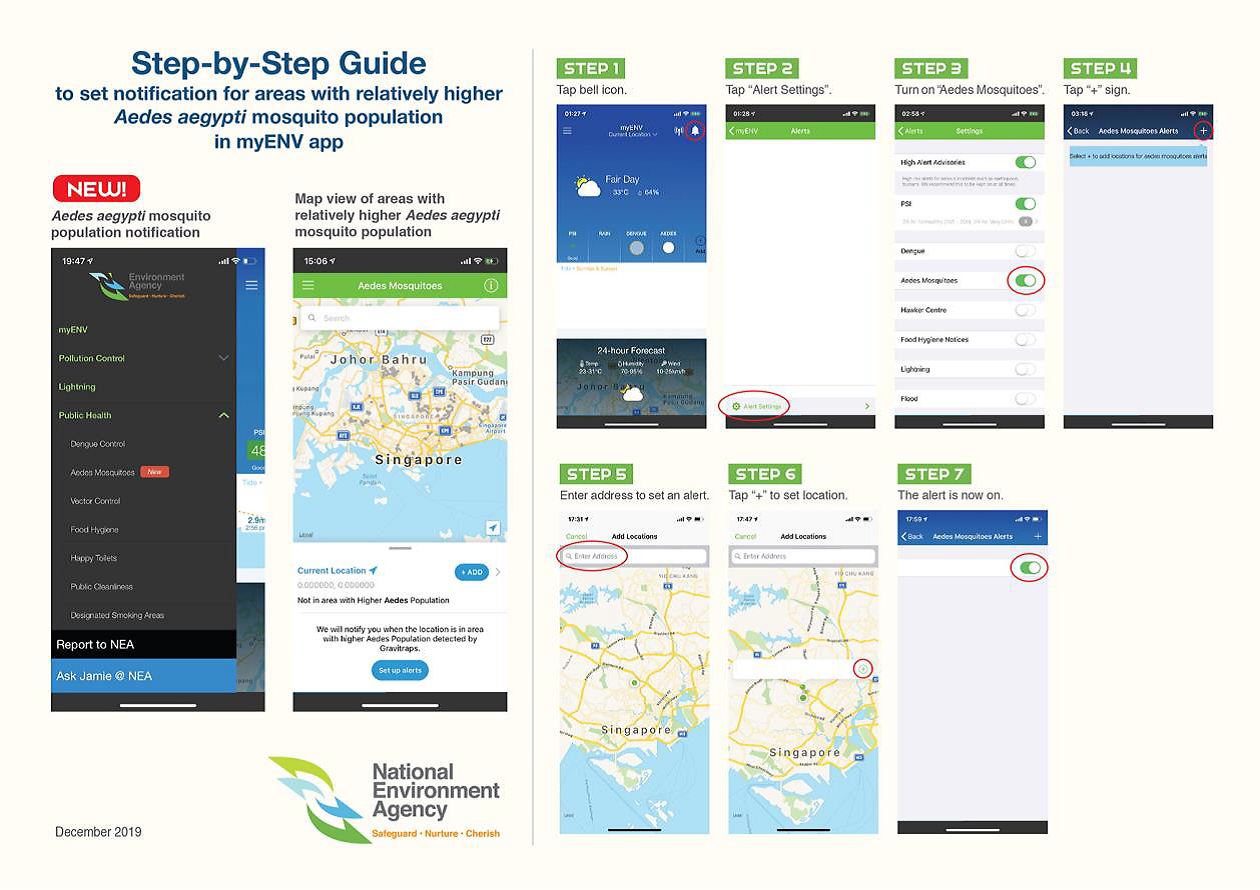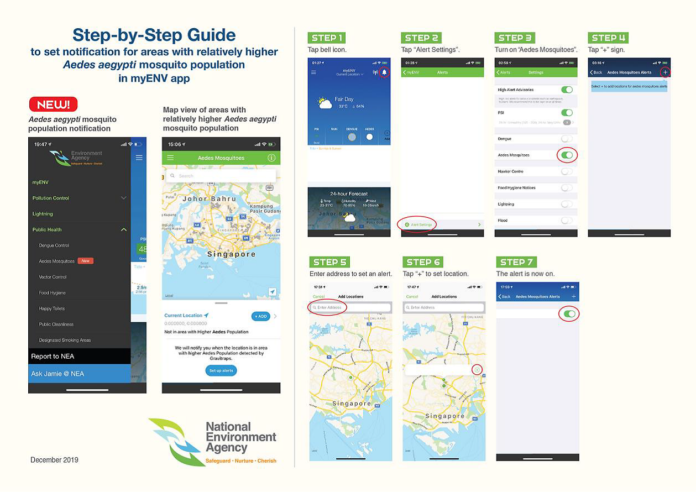SINGAPORE: Members of the public can now use an app to check if they live in an area with lots of mosquitos, as part of the authorities’ push to tackle dengue in Singapore.
Information on areas with relatively higher Aedes aegypti mosquito populations is now available as a new feature on the myENV app, the National Environment Agency (NEA) said in a news release on Friday (Dec 20).
This information will be updated every month on the app, and notifications will be sent out weekly if users enable this setting.
The new feature comes as the population of Aedes mosquitoes – which are the primary vectors for spreading dengue – rose by 20 per cent from October to November this year.
There has also been a 20 per cent increase in the detection rate of Aedes aegypti larval habitats found in homes in November, as compared to October.
READ: Bigger Aedes mosquito population identified as key reason for surge in dengue cases
Although the number of weekly reported dengue cases over the past few weeks has fallen, with cases dropping 22 per cent from Nov 17 to Dec 14, this is still higher compared to the same period last year.
The number of active dengue clusters also declined from 79 to 67 from Nov 17 to Dec 14.
READ: New facility to produce up to 5 million Wolbachia mosquitoes weekly in fight against dengue
DENGUE CLUSTERS
As of Dec 14, authorities have closed 1,427 or 96 per cent of the dengue clusters notified since the start of the year.
Large dengue clusters at Jurong West Street 61 (75 cases), Bedok Reservoir Road and Jurong East Street 13 (54 cases each), Rivervale Crescent (52 cases) and Chuan Hoe Avenue (42 cases), have closed and are under surveillance, said NEA.
However, there are still other large dengue clusters in areas including Choa Chu Kang Avenue 2, Elias Road, Jalan Bangau / Bukit Mugliston and Begonia Drive / Sunrise Avenue.
As of Dec 14, there are 67 reported active dengue clusters, added NEA.
About 60 per cent of the Aedes aegypti mosquito breeding habitats detected across Singapore have been found in homes, with this figure at 70 per cent for dengue cluster areas.
Between January and November, NEA found about 14,800 mosquito breeding habitats after conducting more than 800,000 inspections islandwide.
In the same period, about 7,500 instances of enforcement action were taken against premises owners for mosquito breeding.
With an increasing Aedes adult mosquito population, prevention efforts must continue, said NEA Director-General of Public Health Chew Ming Fai.
“As we continue to observe an increase in the Aedes aegypti adult mosquito population, we must continue to sustain prevention efforts to stem dengue transmission in cluster areas, as well as prevent new clusters from forming,” he said.
Users must update their myENV app to the latest version to set up notifications for high mosquito population areas.
The new notification is available for all iOS users, while an update will be pushed out progressively over the next few weeks for Android users.

(Image: National Environment Agency)





